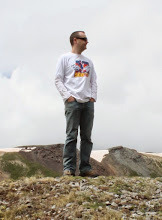Yes, seriously.
T'Pau have a bizarre distinction in the history of one-hit-wonders: the country you are in determines what that 'one hit' is. If you're in the UK you think "China In Your Hand, duh" and if you're in the US you think "Heart and Soul, duh". I fell into the former category from the time it was a number-one hit (1987) through until the time I eventually got around to buying the album (1991). At which point I listened to the whole thing and went "oo, I wasn't expecting that." While on the surface - the first few tracks you listen to - they sound like typical 1980s pop with Carol Decker doing vocals that sound like they're from that old 'Bodyform' commercial, you work out after a while that the lyrics are unusual enough to be at least slightly interesting, and after a little more listening you realise that whoever produced the record either took a lot of time, was very good or got very lucky with the arrangements for most of it. T'Pau saw themselves as a heavier rock-type band (as their frankly rubbish follow-up albums clearly show) but the way Heart and Soul and the rest were mixed was surprisingly subtle, and even things like the gaps between the tracks - Bridge of Spies into Monkey House, then Monkey House into Valentine - show why you should always buy the original album and never the compilation.
And there in the middle is the title track from the album. Starting off keyboard-driven with some guitars coming in to pad things out (listen to a live version without the guitar effects over the first verse and it's nothing like as good, it's basically just Decker and Paul Jackson the bass player, who's only playing one note), it starts off as a typical track on the album, Decker hitting the vocals just right (Gary Barlow you should know better) and off we go, another decent-quality track from a well-mixed 1980s pop album.
But in the Top Forty At Forty? Seriously? Yes, seriously.
Because after the guitar solo (and Dean Howard does a better job on the live versions after he joined the band) it goes into a bridge, as many songs do. Decker's at full vocal here - the melody line almost always on the same note despite the chord changes, somehow making her portrayal quite intense, and the lyrics (as the best lyrics do) going way beyond the song and becoming something for people to relate with and find expression for their own feelings, whatever the circumstance:
I don't know if I could go through it all again
For what's the point if you are never free to say:
This is what I believe
This is a part of me
No hero
No regrets
But only meant-to-be
Back into the chorus and the song winds down. Then (album version only, never heard a live version where they did this), drum kicks in and we're into a reprise of the chorus chords, which actually are only two chords (Bb and F). And while the solo over the reprise is good to listen to (actually it's really good), there's something about those two chords repeated with that rhythm, at that speed, that is inherently relaxing. In fact it sounds like breathing to me - Bb = breathe in slow, F = breathe out slow, and repeat. The song is in F, so that's 'home', and Bb works with it like the pendulum on a clock or the up-and-down of a see-saw, and again for whatever reason the arrangement, the tempo, the instruments just allow this to come out.
Maybe it's just a lucky accident, but this is a very special song. Yes, seriously.
